- Home
- Anson Cameron
Boyhoodlum Page 3
Boyhoodlum Read online
Page 3
‘What?’ Dad asked.
‘I didn’t … What?’
Next day after school I turned on the new TV and the Cisco Kid was alive again. And if I had disliked the Japanese rendering of this Mexican do-gooder, then the German version was larger, sharper, louder and more suavely Latin than ever before. A supra-real presence with teeth white as a cartoon tiger’s fangs and far more likely to steal a boy’s only mother than the pallid iteration of good Samaritan I had killed. My attempts to defeat him had gifted him an improved aura.
I considered shooting the new Germanically-enhanced Cisco, but reckoned it unlikely I’d get away with gunning down a second TV set, judging by the way Bloomsy had eyeballed me, and was, anyway, pretty sure most things German were booby-trapped for revenge. So the Cisco Kid lived on, and I watched Mum for signs of ongoing infatuation, but her ardour for that cad seemed to have cooled after his first death.
Cameron and Cameron was a Dickensian office of dark wooden panels and frosted glass and the women who worked in the main office typed at breakneck speed and talked in low voices because clients hovered nervously just over the half-ceiling-height wall in the waiting room. Clients were people who needed the law. Bruised and outraged they sat in the waiting room until being ushered in to see my dad or Uncle Bruce or Pa or Johnno, where their various agonies were dissected and law or justice or, anyway, the closest thing to it they were going to get was delivered.
In the waiting room at Cameron and Cameron fresh widows wept noiselessly alongside fidgeting youths with tattooed knuckles charged with crimes of violence. Hairy-armed dairy farmers in semi-formal dress as incongruous as vaudeville chimps in tuxedos lingered, come to see my father about cutting promiscuous daughters from their wills. Business owners cheated by their partners bristled and paced. Wives frocked smartly, come loaded with grievances against soon-to-be-ex-husbands, sat with their lips pursed. Ex-employees come to unload accusation on and reap compensation from dictatorial bosses silently ticked off these accusations on their fingers learning them by rote.
I came here to see Dad. And not having had much experience of pain, I was fascinated to sit amongst these people with their equanimity disfigured by mean circumstance. I sat quietly and studied them, trying to guess their particular agony and wondering how they had come to this low point.
My investigations into the pain of clients began as the normal boyish wide-eyed staring kind. I would ogle weeping widows with a hypnotic intensity they couldn’t ignore and that sometimes sobered them up. It is disquieting to have a flagrantly curious boy in your face when your husband has suddenly fallen off the perch and you are venting emotion. The more evident a widow’s grief the more evident my fascination. I leaned at them and boggled. Their twisted mouths and shuddering shoulders were a reaction to death.
If my first explorations into the misery of widows were just by way of goggling showily at them, then, given my quick understanding of serious things that happened to old people, I soon became a counsellor. Rapidly having become a veteran of waiting-room sorrow I began to offer up advice to my father’s more chronically heartbroken clientele.
One day after school, while waiting for Dad, I sat next to a dried arrangement of womanhood, leached of colour and whiskered as a hound. She wore a dark woollen suit and sat dabbing tears, giving off mousy squeaks of misery and stifling sobs so they sounded like they might break her bones. I began to watch her. I guess I turned to face her and leaned toward her. I was brazen in my study of pain.
Just as rain falling on earth releases a rich petrichor odour, the tears of a new widow furtively exploring the many crevices of her rumpled cheeks and being wiped on her liver-spotted hands release a reek of history, an arc of life, that make many dead worlds rise up in shimmering vision around her. As this widow cried I saw her as she had been in her girlhood in a corseted dress with gigs and phaetons rushing by, holding the hand of her father who wore a white powdered wig while a town crier shouted ‘Hear ye … Hear ye …’ Seeing her swathed in these antique scenes I judged she had had a very long life indeed, and her tears concerning death thus seemed a little indulgent to me.
Anyway, I didn’t rate death as much of a problem in those days, not having any experience of it and it seeming a threat as distant and abstract as the Soviet Union. So I didn’t believe she was doing the right thing by herself here, in public, in my father’s office, with these indecorous mousy squeaks and this dabbing at her eyes. I felt I should straighten her out and give her some perspective, given that there was a man sitting alongside her with a missing leg.
I reached out and took hold of her hand. I was seven. ‘From the moment we are born we are sentenced to death,’ I told her. It was a thing Dad had told me some nights before while we were doing the washing up, and I was mighty impressed with it.
As a stress-alleviating homily it seemed to work for a few moments too. The old prune went quiet and her eyes became contemplative. I thought she was going to smile. The grave robbers and swindlers and fathers of soon-to-be-disinherited daughters otherwise dotted about the room, and the one-legged litigant alongside her, also appeared to come down out of their own problems and onto the plain of philosophical rumination where I had invited them.
They stopped pacing, the cracking of knuckles and sotto voce plea-bargaining went silent, hopalong stopped caressing his stump, the whole room stilled. And I began to puff my chest at having solved this adult problem of death that lingered in the Cameron and Cameron waiting room. Then the old girl set off hooting like I’d poured something very hot on her and the other clients began to make rough observations about me that, synopsised, pretty much amounted to the fact I was a little prick who needed a foot in the arse.
Another day I sat next to a young woman there who was dressed head to toe in denim, bouncing a baby on her lap while smoking. Both of them were crying, the baby loudly and she noiselessly. ‘What’s wrong with you?’ I asked.
She took the smoke from her mouth. ‘What? Who are you?’
‘A Cameron. A Cameron-and-Cameron Cameron.’
‘Fuck,’ she said, and put her squealing baby on her hip and her fag in her mouth and walked out of the office, apparently unwilling to have her legal matters handled by a nosy boy.
Just over a wood and frosted glass partition from the waiting room was a hive of female receptionists, secretaries and clerks, and from it came the sounds of typing and of phones being answered in chirpy voices that fell to grave tones when a crestfallen client was encountered, a manslaughter accused, or an abrupt bankrupt.
The women who worked in here were wary of me. I had a gift for recognising pliable underlings, and at Cameron and Cameron, I had discovered a bottomless pool of servitude. They must have despised me and I’m sure behind my back a semaphore of hatred flashed between them; the shaking of fists, the slitting of throats, the strangling of imaginary pencil necks.
When Dad was working late and the pool of female workers had gone home I tromped around their work stations, sampling the archival smells, the scent of old paper salvaged from the strong room, the legal whiffs of wood and rubber and ink – the law in those days smelt of India ink and old paper. People’s lives lay across desk tops in pen and ink documents tied with pink legal ribbon.
I’d wander about adding a few misspelt expletives to any half-typed letter hanging from an Olivetti, opening the drawers, overdubbing nonsense onto the dictaphone tapes a secretary had yet to transcribe: ‘Dear Mrs Russell, with relation to the Last Will and Testament of your recently deceased husband Harold, tickle my nuts …’
They typed these tapes out at such unthinkable speed they would sometimes weave a ‘tickle my nuts’ into the dissolution of a local dignitary’s estate without noticing it. Which would inevitably lead to a spectacularly hostile widow at the front counter of Cameron and Cameron a day or so after she’d come down from her apex of grief and faced the future and read the aforementioned document.
In the school holidays I visited Dad at Cameron and Came
ron to eat lunch with him in his office. We would each eat a meat pie followed by a vanilla slice. He had paintings of stockmen roping cattle on his walls. Which made me think of Clancy and how the guy in that poem somehow fancied Clancy wouldn’t suit the office. These outback scenes seemed to me to hint that Dad was a Clancy of the Overflow who had been trapped in an office by expectations and responsibilities – one of which was me. So the paintings of the wide open spaces made me feel guilty, and sad.
The office he was trapped in overlooked a small park in the middle of town where a group of local blackfellas drank beneath a telecommunications tower. One lunchtime we watched as an old white-haired guy, staggering drunk, looked around suspiciously before hiding his bottle behind a rock and entering the public toilet. When he came out he couldn’t remember where his precious thing was. While we watched he turned confused circles. He looked behind one bush, and another, then under a bench, scratching his head and swearing.
Until Dad couldn’t bear it anymore. He laid down his vanilla slice and opened the window and shouted, ‘Billy. It’s behind that rock there.’ He pointed out the bottle and Billy swooped. I was wide-eyed at what he’d done. Should a lawyer be propagating public drunkenness? I held my slice and waited. He slid the window closed. ‘It’s all he’s got,’ Dad told me.
This bottle hunt happened a few more times while I was having lunch with Dad. Until it got to the stage Billy would hide his bottle and wander off to get something from a shop or to go to the toilet and when he got back he’d go through the motions of doing a mystified three-sixty before looking up at Dad’s window and shrugging. Dad would slide the window open and shout down, ‘Under the far rock.’ ‘Behind the bench.’ ‘The yellow bush. To the left. Further left.’
One day we watched Billy place his bottle in a bin and pull some paper over the top of it before staggering away. When he got back it was gone. He looked up at the window and showed his palms. ‘Go on, you tell him,’ Dad said. I felt proud to be given the job. I slid the window open and yelled, ‘Molo Johnson hooked it. He went into Maude Street.’
‘Fuckin Molo. Get fucked, Molo,’ Billy shouted up at the building. It made me feel good to help him and I wondered if I wasn’t on the wrong path in life. Maybe welfare and charity was my thing.
Talinga Crescent curled around our house like a moat around a castle. The houses across the road that surrounded ours were smaller, and most were filled with older people. Not people who had lived young through another time and finally found themselves here, in dotage. These people had no past. They were grey animals, born into decrepitude; popped into being as desiccated, humourless, slow-moving, child-hating beasts.
There was Mr Sargood, deaf and roaring loud with his pants hitched high and his Torana ricocheting homeward with neighbourhood shrubs, signage and chattels balancing on its bonnet. And Mrs Quickly next to him, protected by a cloud of camphor and silence and a jungle of agapanthus and canna lilies. Loud radio blatherings sometimes erupted from her bedroom window in the small hours when she was trying to get her new-fangled Panasonic from the choral music station to the station where an old queen pretended to be a hetero-lothario and pitched subtle woo at insomniac widows.
She’d crank the volume button by mistake and then panic and crank the tuner. My summer dreams would be torn open by ‘And did those feet in ancient time …’ followed by a blurt of static and ‘… so pleased to be keeping company tonight with you sleepless ladies tossing and turning in your beds. Here’s something to help you toss. A ballad from the crooner’s crooner … Mr Crosby. Ooh, Bing. Ooh, Bingedybingbing.’ About there, when the closet queen DJ had just shouted Bingedybingbing into the borderland of my dreams, Mrs Quickly would pull the plug. I’d be sitting bolt upright wondering what Bingedybingbing meant and who had shouted it.
There was a vacant block next to Mrs Quickly where we built cubbies, launched rockets and dug for gold. Next to that lived Mr and Mrs Mansell who yearned for the Church of England to rise again and make demands on the townsfolk. She was tall, whitely-coiffed and stiffly regal … but she could shout like a town crier who’d swallowed another town crier who’d swallowed a megaphone. From a hundred yards her rantings had such an Old Testament sky-deity timbre that a prickly thrill would course your skin and stand your hair if she caught you unawares – which she deliberately did.
She felt licensed by Christianity to shout at us and correct or admonish us whenever she detected moral error in our play. And she always detected moral error in our play. This gave Talinga Crescent a biblical edginess for us younger citizens. We were light on our toes, ready for voices to come from the sky and put us right on God’s opinion and on the riders, codicils, addenda and clauses that accompanied his opinion.
Her pious boomings might break over us at any minute. ‘Why play on the road? You have a garden. Go home before you’re run down and killed. Thou shalt not trespass.’ Her voice would rattle fence palings and dogs would growl low in their throats. She had a white tongue crazed as darkly as a Ming vase. I longed to hit it with a hammer to see if it would shatter.
One day she hollered at me with such force the contraction of her muscles shrank her girth enough for her slip to fall off. I was on my knees in our garden near our low brick fence collecting insects to torture. Enticing a beetle into my new Bug Catcher with a sales pitch partially plagiarised from the Bug Catcher ads on TV and partially made up by me. ‘Come on, slater-beetle. Dual top-and-bottom ventilation allows for continually circulating air. Like a palace. So roomy the huntsman mightn’t even notice you.’
Then the biblical thunderclap: ‘Boy, what are you doing?’
I flinched and snared myself in Dad’s roses. ‘Nnnn … Nnnn …’
‘You haven’t got a ladybird in there, have you?’ she brayed. ‘“He prayeth best, who loveth best all things both great and small.”’
Wonderful, I thought. I’m just about to get started burning this collection of Bourbons. (Bugs I caught routinely became members of the usurped and sentenced royal families as seen on TV.) I was going to roast this lot with the white-hot point of light that fell like a miniature star from a magnifying glass on a sunny day. And now this old bag had kicked in with her usual homilies and psalms and associated killjoy crap.
But as she shouted ‘both great and small’ a silky white undergarment appeared from beneath the hem of her skirt, fluttered down her knotty legs, and pooled at her feet. I goggled high horror. I thought the hag and the Lord had teamed up and were punishing me for my abuse of His small things with a striptease, and that her slip was just the first garment to be loosened by His invisible hand. In a moment she would be standing there naked, undressed by God as a vengeance on me and a lesson to me. I burst into tears and wailed, ‘Don’t strip. I’ll let the beetles go.’
‘You cruel boy.’ She stepped out of her slip, crossed the road and snatched my Bug Catcher from me and shattered it on our brick fence. My Bourbons, my newly minted Dauphins, the Louis I through XIV, the Maries Antoinette and Stuart as seen on TV, became crickets, beetles and spiders and rained across the horse-manure France of the garden bed and scuttled to freedom.
The Bug Catcher had been my newest favourite thing, a birthday present from Aunty Daphne. But its destruction seemed a let-off when set alongside the threatened striptease. ‘Thank you,’ I whimpered. ‘I’m glad you and Him didn’t do it.’
‘Do what, you stupid boy.’ So loud the roses quivered. ‘Who’s “Him”?’
‘You and God. I don’t want to see your bottom.’
Mrs Mansell shivered as if some terrible electricity or idea had got hold of her. She was always so loud and full of advice when we met. But the puff and certainty usually drained out of her by the time we’d swapped a few sentences. Seeing she was now bewildered unto spasms I tried to clear things up for her. ‘You don’t have to show your vagina to boys so they’ll free their beetles.’
She tried to slash me with the jagged neck of my own Bug Catcher. Without the low brick wall betwee
n us my throat would have been cut from ear to ear. This woman who annually won prizes for the intricately crocheted doilies she donated to the St Augustine’s Church Fete had partially undressed in front of a boy and then attempted murder when her advances were rebuffed.
She skinned both her knees on our brick fence when lunging at me. I was high in our bougainvillea hyperventilating and whispering ‘Fuck’ repeatedly by the time she waddled straight-legged, with bleeding knees, back across the road and tried to bend to pick up her slip, before giving it up and waddling indoors.
Old people … old people were powder kegs, all bound up in hair-trigger sensibilities. They had unknowable proprieties. Who could tell what would set them off? And our crescent was bristling with them. I lived in an asylum roamed by dangerous, liver-spotted pachyderms.
Mr Vagg had been watching from his verandah while this went on. It must have been a mystifying exchange, him only being able to hear Mrs Mansell’s side of it – the shouting about God’s things, the appearance of the white slip, my tears, the smashing of my toy, and the swipe she took at me. But he spent a lot of time on his front verandah, so he would have seen me lunged at by adults before, and it was kind of him not to come to the conclusion I was a little arsehole, instead of a kid bullied by geriatrics.
Mr and Mrs Vagg lived next to Mr and Mrs Mansell. They were farmers who’d retired into the town and thought neighbours an entertainment and took delight in almost anything we did that wasn’t endangering their lives or cats. Mr Vagg was often a fly on the wall when I hit hard times with old people. He saw us Cameron kids as a sort of cinéma-vérité and if a rock occasionally came flying out from the action on screen and smashed one of his own windows, then, oh well, our dad was good for the money.

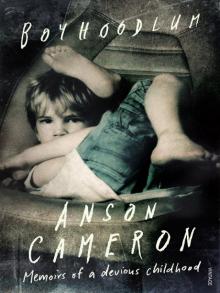 Boyhoodlum
Boyhoodlum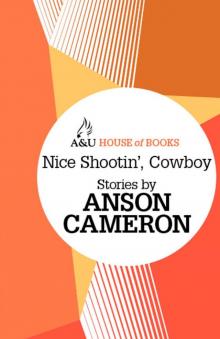 Nice Shootin' Cowboy
Nice Shootin' Cowboy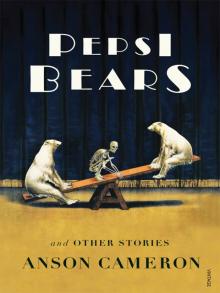 Pepsi Bears and Other Stories
Pepsi Bears and Other Stories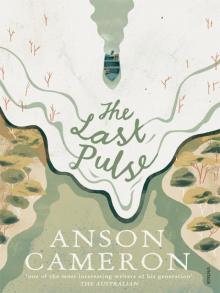 The Last Pulse
The Last Pulse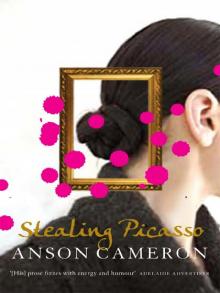 Stealing Picasso
Stealing Picasso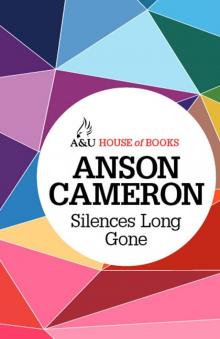 Silences Long Gone
Silences Long Gone